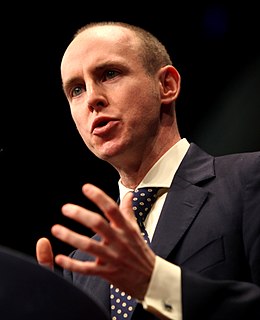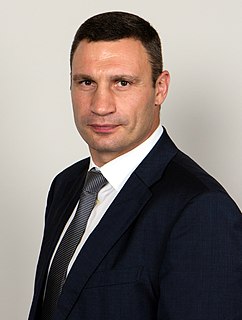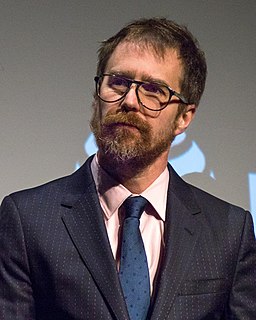A Quote by Ro Khanna
We are very, very thoughtful about once an economic system creates maldistribution of wealth, thinking about how we redistribute it, but we need to pay attention to why that system is excluding people to create that maldistribution in the first place.
Related Quotes
We need to create jobs for 300,000 youth graduating from high school in the next three years. We need to produce growth so we can have an economic system that can turn our natural wealth into a productive system. We need services, because poverty reduction cannot take place without effective citizenship.
How is it that we have created an economic system that tells us it is cheaper to destroy the earth and exhaust its people than to nurture them both? Is it rational to have an pricing system which discounts the future and sells off the past? How did we create an economic system that confused capital liquidation with income?
The cash register did more for human morality than the Congregational Church. It was a really powerful phenomenon to make an economic system work better, just as, in reverse, a system that can be easily defrauded ruins a civilization. A system that's very hard to defraud, like a cash register, helped the economic performance of a civilization by reducing vice, but very few people within economics talk about it in those terms.
Once I do something, I need to be obsessed - or maybe I don't need to be obsessed, but I get obsessed because that's just the way my brain works - but I need to pay a lot of attention to detail. Because everything counts to me once I do something, even if it's a movie that nobody cares about. That's why I need to choose very well what I want to do. But in real life, when I watch TV or whatever, I guess I'm not that obsessive guy, and I'm pretty boring.
Animism is not a belief system, but a worldview: The world is a sacred place and we are part of it. The factuality of this statement is not the issue. To say that the world is a sacred place is to make a statement about values, not facts. It’s a statement about what you mean by ‘sacred,’ just as ‘Money can’t buy happiness’ is a statement about what you mean by ‘happiness.’ To put it all very simply, animism isn’t a belief system, it’s a value system.
When you say the tax system benefits the rich, there are a lot of people who respond, "That can't be true, look at the rate of tax. The people who are rich pay a higher rate than you or I." Well, yeah, but if you don't have to pay taxes on a lot of your income, then your real tax rate is a lot lower. And if you're allowed to pay your taxes thirty years from now instead of today then you're a lot better off. People need to have a sophisticated understanding of how the system works to appreciate that the posted tax rate really has very little to do with the taxes people pay.
I've got to say our banking system is a safe and a sound one. And since the days when we've had federal deposit insurance in place, we haven't had a depositor who's got less than $100,000 in an account lose a penny. So the American people can be very, very confident about their accounts in our banking system.

































